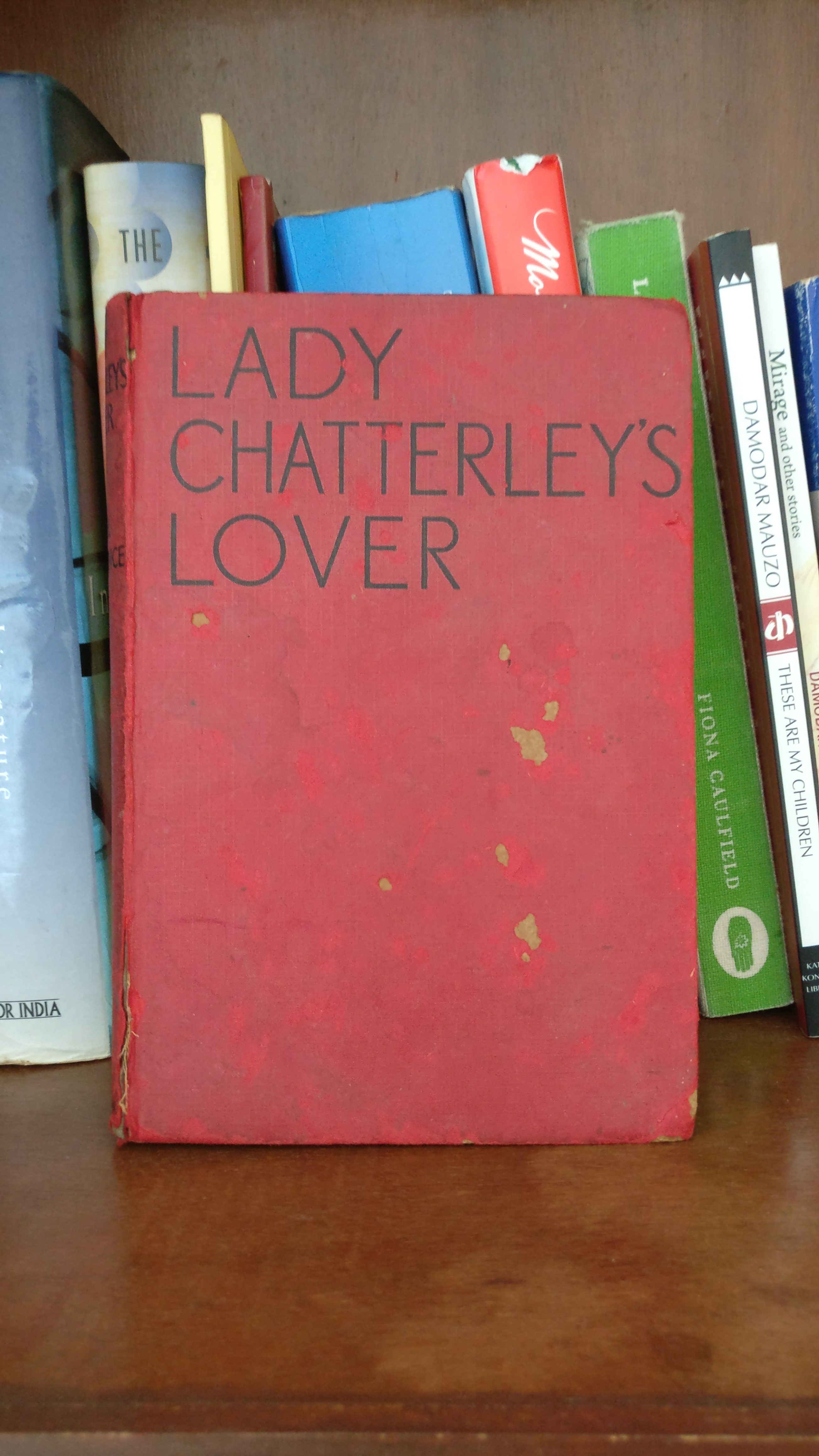There was a discussion recently on a Facebook chat about the top 10 books that we liked. I made my list quickly but then one of the books happened to be “Lady Chatterley’s Lover” by D H Lawrence. This initiated a conversation about my reasons for picking a controversial and supposedly erotic novel of the yesteryears.
An early 20th century sensation, this book drew a lot of attention for its sexually explicit subject matter and supposed endorsement/validation of illegitimate relationships. The book was published in 1928 in Italy and 1929 in France and Australia. The uncensored text had not come out in England till 1960 when it won the obscenity trial for its profanity and sexually explicit scenes.
Living in the 21st century, censoring or censuring of anything sexually controversial is thought and viewed differently. Today ‘Lady Chatterley’s Lover’ has not lost its previous notoriety. I read the book a few years back and the first thing that impressed me was certainly not sex and obscenity; in fact I was aroused by its progressive thoughts and bold plot especially since the setting is a conservative and capitalist generation of England and the world.

The story is about Constance (Connie) Reid, a young intellectual born into an upper-middle class family who, along with her sister Hilda, is exposed to intellectual and cultural ideas of the age. At 23 she gets married to Clifford Chatterley, a descendant of an aristocratic family. After their marriage and honeymoon, he is sent to the war and gets paralyzed hip down during the war. The couple soon move to Wragby, a mining country where the Chatterley family house is situated and start a new life. Soon Constance or Lady Chatterley as she is called now, finds herself empty with a huge house, grim and unwelcoming house staff and the old and desolate mansion. Clifford becomes a popular writer and with a constant stream of intellectual men who visit Wragby Hall, Connie tries to find her bearings. Her attempts in getting involved in their ‘enlightening’ conversations fail as she finds their discussions shallow and boring. Her loneliness deepens as she finds herself devoid of any physical or emotional attachment with her husband owing to his passionless attitude and paralyzed condition. Amidst her desolate life, one day she meets the gamekeeper of Clifford’s estate, Oliver Mellors to whom Constance slowly gets drawn. Initially a little hesitant and conscious of their social status, they soon start an intense sexual affair which eventually unites them emotionally. Oliver is previously married to Bertha with who he gets separated and chooses to live away from any contact with people. As the book progresses, Connie gets pregnant and she leaves with her sister to spend her time away from Wragby. Oliver is taken off his job and he starts working on a farm. The novel ends with Connie confronting Clifford and confessing to him about her pregnancy and Oliver waiting for his divorce from his ex-wife and with a hope of getting married to Connie one day.
The opening lines of the book sum up the author’s perspective of the age.
‘Ours is essentially a tragic age, so we refuse to take it tragically. The cataclysm has happened, we are among the ruins, we start to build up new little habitats, to have new little hopes. It is rather hard work : there is now no smooth road into the future : but we go round, or scramble over the obstacles. We’ve got to live, no matter how many skies have fallen.’
It is rather disappointing that we fail to notice and understand the optimism with which he begins the book. Ninety years down the line, the book still carries with it the impression it created in those times with the mere mention of the title. That is perhaps because of the stir the subject matter created in those times. But one needs to look beyond the obvious and realize that the book has come a long way from just sex and illicit relationships. The author’s use of raunchy vocabulary and language in certain scenes, along with the fact that the story is woven around an illicit affair of an upper class intellectual with a working class gamekeeper set in a capitalist English society, had been a major reason for controversy. The book highlights a very glaring class disparity between Connie and Mellors but as the novel progresses, we see Constance’s evolving personality and self-realization that for a relationship to thrive, the involvement of mind alone is not enough but it is the unification of both mind and body that makes a fruitful relationship.
That aside, Constance’s characterization is commendable as she makes a good antithesis for Clifford’s personality. Her affair with Mellors is an extension of her perceptions about class, gender and economic status. While Clifford is cold and passionless, she on the other hand is sensuous, vibrant and full of life. He, in spite of being a successful writer and in a position of authority, is condescending and arrogant about his fame and noble birth and she is socially progressive and empathetic towards the colliers and their miserable lives. There are many instances where she argues with Clifford for leaving the miners to their destiny but Clifford, raised with capitalistic ideas, believes that the misery of the colliers is their own fate and that they depend on him for their livelihood. She tries to reach out to the colliers by befriending a few of them and making visits to soot-filled, desolate miner’s village, Tevershall. She argues with Clifford about relieving the colliers of their poverty but the latter believes that he is doing them a great justice by employing them in his mines.
“I can live without the pits. They can’t. They will starve if there are no pits.”
Connie tries to reason with Clifford saying that if the miners are not cared for by the employers and the economic disparity is not lessened, there will be discontent and jealousy which will soon destroy the rich. Clifford is smug believing that men who own and run industries are naturally born to do so and it is nature’s way of choosing rich and the poor.
“Why is the star Jupiter bigger than the star Neptune? You can’t start altering the make-up of things!”
The novel is autobiographical and the author’s experiences growing up in a coal mining town forms a strong background to many of his novels. Like many of his other works, ‘Lady Chatterley’s Lover’ brings out dehumanizing effects of modernity and industrialization and evils it has thrown at the world.

A nice and critical review. I have not read the book, but I remember this was mentioned at several places in Irving Wallace’s novel ‘The Seven Minutes’ read by me some 40 years ago. This novel too was of course based on a bit of eroticism, and more on human psychology and criminal court proceedings. I am not sure, but the theme of the novel you reviewed, brings the Telugu writer Chalam, who had also written on similar themes. He too was looked down upon, for people took more notice of the erotica rather than the human psychology.
More than any thing, I am proud of your flawless English writing. Keep writing.
Read as ” brings …..Chalam to my mind” in the seventh line as I see on the screen.
Thanks for your comments 🙂
I heard about the Telugu writer Chalam from my dad. I intend to read his stories soon.